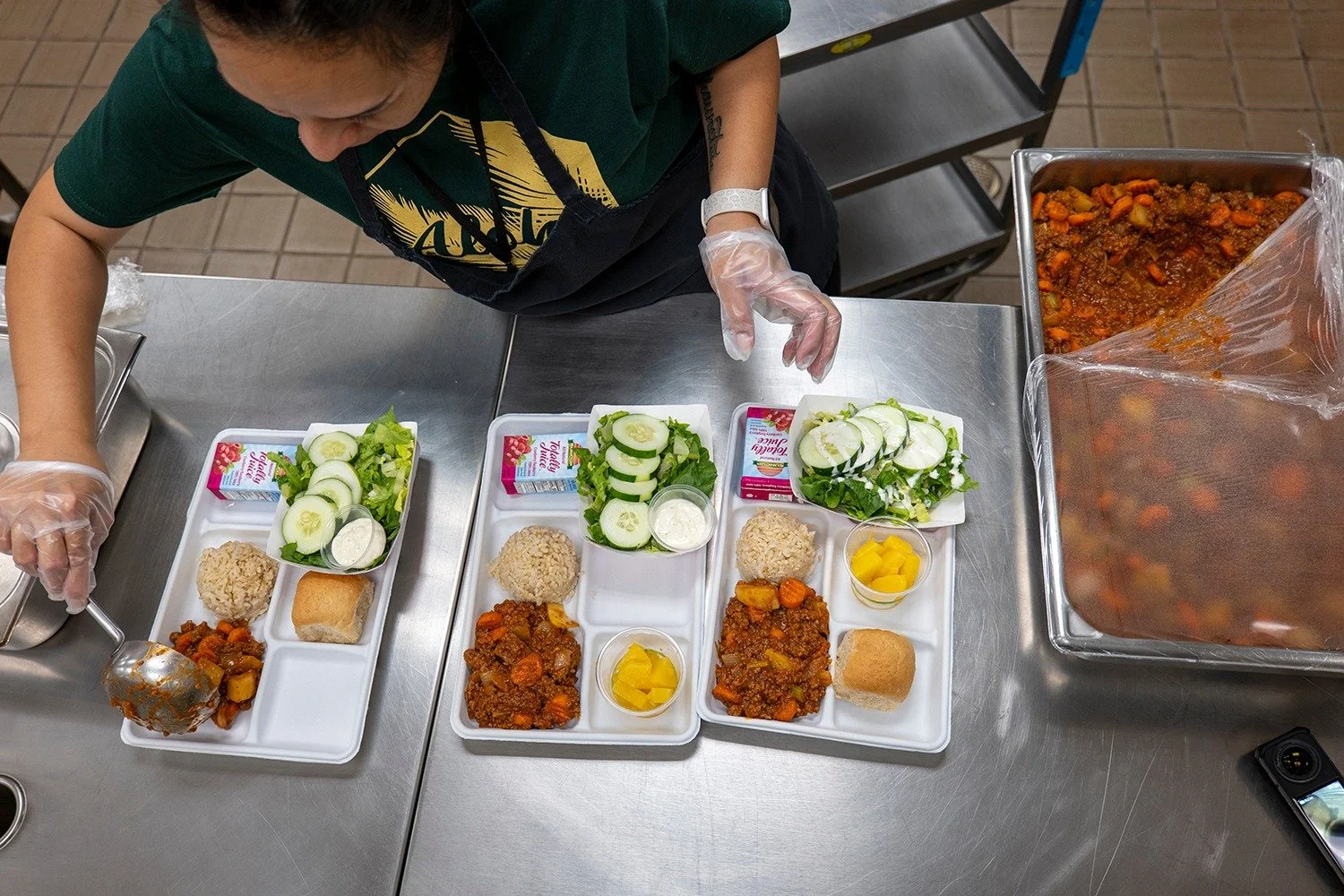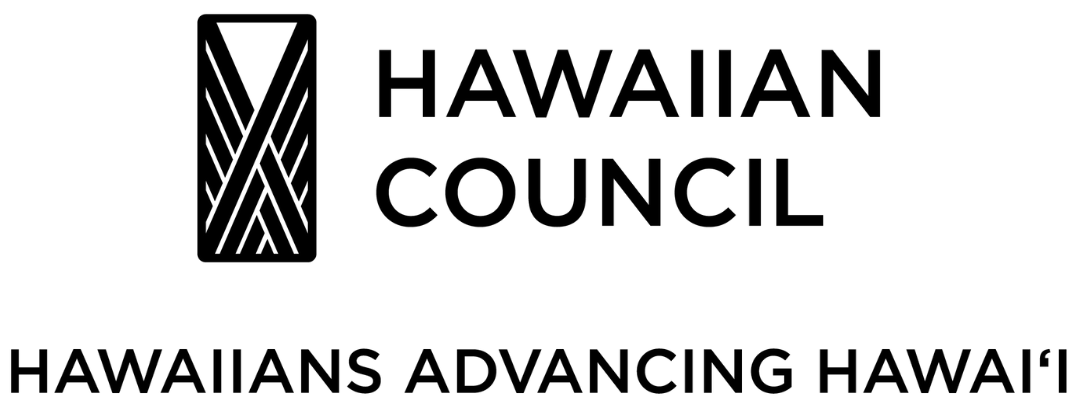
Food Security
& Sustainability
Over 28% of Oʻahu residents are food insecure.
Our mission is to ensure all residents have access to nutritious, affordable food while promoting equitable community-based food systems that strengthen local economies, protect the environment, and build long-term resilience for Oʻahu.
A "food system" refers to the complex, interconnected network of activities, people, and processes that influence—and are influenced by—the journey food takes from farm to table and beyond. It encompasses:
All activities at every stage of the food supply chain, from production, processing, distribution, and consumption, to waste disposal.
The social, economic, political, environmental, and health drivers that shape these activities, as well as the outcomes they produce.
The individuals, communities, and organizations directly or indirectly involved in these processes.
The intricate interconnections among all these elements.
Food systems exist at multiple scales. Oʻahu’s food system is a network of smaller, diverse systems, ranging from local community-based food networks to industrial-scale operations. It is also deeply embedded within and influenced by larger state, national, regional, and global food systems.
Rather than addressing food issues in isolated silos, adopting a food systems approach calls for a holistic view that considers the interconnectedness of all aspects of the food system. It recognizes that actions in one part of the system reverberate across other areas, reinforcing the need to break down policy silos and encourage collaboration across sectors and disciplines. Ultimately, this approach acknowledges our shared pilina and that everyone—from keiki to kūpuna, and from every walk of life—has a role to play in shaping the future of our food system.

Oʻahu Food Systems Plan
The Resilience Office is drafting the City and County of Honolulu’s first-ever Food Systems Plan to guide the actions and investments of the City in bringing about a sustainable, prosperous, resilient, equitable, and community-based food system. Click the button below to learn more, and share your manaʻo via survey!
Key Projects
Farm to School Action Plan
The City is proud to have collaborated with the Hawai‘i State Department of Education and the Office of the First Lady to support the development of a Farm to School Action Plan for Central O‘ahu to enhance student nutrition, create guaranteed markets for local farmers, and promote food sustainability in Hawaiʻi’s public schools. This initiative—which centers on the state’s first Regional Kitchen serving on the Leilehua, Mililani, and Waialua Complex Area—was developed by the Hawaiʻi Agricultural Foundation with funding secured by the City through a USDA grant.
Garden beds at Mānoa Gardens Elderly Housing.
Food Access Micro Summits
To better understand how the City can support access to healthy and affordable food, community meetings were held in Waiʻanae, Kalihi, and Waimānalo in partnership with the City's Office of Economic Revitalization. Findings from these and future summits are informing the development of the City’s first Food Systems Plan.
Oʻahu Compost Project
Hawaiʻi Food Garden Fund
The Hawaiian Council and the Hawaiʻi Public Health Institute have launched the Hawaiʻi Food Garden Fund in partnership with the City to establish 1,000 edible gardens to increase food sovereignty. This program builds upon similar efforts in 2020 with CARES Act funds, which implemented edible gardens in public housing complexes.
Oʻahu Good Food
Food access is a key dimension of food security. This story map walks through important factors affecting food access on Oʻahu, from federal nutrition programs like SNAP and WIC to the location of emergency food assistance programs (e.g. food banks) and community and school gardens. Tools like this help us plan for a more affordable, accessible, and equitable island food system.
Hawaiʻi CSA Webtool
Evaluating Community Gardens in Public Housing
In 2020, the City launched the Food Security-Scaping for Affordable Housing project, installing 160 garden beds across seven affordable housing sites. Implemented rapidly during the COVID-19 pandemic with CARES Act funding, the initiative aimed to increase community access to fresh food, promote self-sufficiency, and support mental and physical wellbeing through community gardening. Four years later, the Resilience Office revisited the project to assesses the long-term sustainability, functionality, and impact of these gardens. Findings will inform future planning and investment in community-based food systems within public housing.
Agricultural practices are a key adaptation for both addressing contributing factors to climate change and mitigating impacts. Resources for supporting current activities and transitions to Climate Smart Agriculture (CSA) practices are increasingly available from multiple sources. Designed to help farmers and planners in Hawaiʻi, this resource provides a way to more effectively navigate these resources.
Developed in collaboration with Oʻahu Resource Conservation and Development Council, this new mapping tool provides useful information to help producers plan and enhance their farming practices, including information about elevation, hazards and risks, land use, rainfall, and soil characteristics. Simply draw an area on a map of Oʻahu and generate your report.
Oʻahu AgExplorer
The now-completed Oʻahu Compost Project diverted over 30,000 pounds of commercial food waste from restaurants in Chinatown to Hawaiʻi’s first in-vessel composting unit. It aimed to close the biological resource loop and create high-quality compost for local farmers.
The Oʻahu Good Food Program uses the purchasing power of the City and County of Honolulu, large organizations, and the hospitality industry to support local farmers, ranchers and growers. Recently, the Resilience Office engaged local food systems data firm Supersistence to evaluate the program, identify key barriers and opportunities, and develop strategic recommendations to guide future investments.
Food Access Map





















